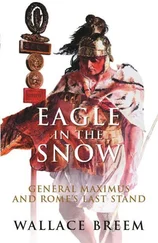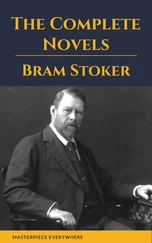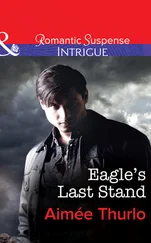He said, “You forgave me, Maximus, but I cannot forgive myself. That is why I would have made you emperor if I could.”
I said, “I understand.” I smiled. I said, “I wonder if Stilicho will remember us. I wrote to Saturninus last night. I sent him your wishes.”
We returned to the camp and we waited; but the waiting was not for long. On the thirty-first day of December, in the year of their Lord, four hundred and six, by the christian calendar, the peoples of Germania; the Alans, the Quadi, the Marcomanni, the Siling and the Asding Vandals, led by their five kings, broke camp and crossed the ice at Moguntiacum.
XVI
THERE WAS A full moon that night and the sky was clear so that the sentries could see the snow across the river. A little before four o’clock three points of light flickered upon the hill slopes behind Aquae Mattiacae. A single trumpet sounded in the frosted air and the legion awoke instantly at the call to arms. There was no fuss, no unnecessary noise and no disorder. Quietly they dressed and quietly they armed. By sections, the garrison moved to their stations on the walls. Spears in hand they waited, straining into the half light to watch for movement on the ground before them. Details of troops moved off quietly into the abandoned town while the cavalry rode out through the gates to their positions along the line of the road. At five o’clock a light flared away to our left, and then another and another. Signal fires glowed to the right and signallers came running across the hard-packed snow to report their messages.
Confluentes had been attacked in strength; Borbetomagus had been attacked; there was movement on the ice opposite Boudobrigo and Salisio, and the abandoned outpost on the bridgehead at Bingium had been occupied by armed men. The island garrisons reported tribesmen mustering on the opposite bank and moving in the woods behind, from where the sounds of fighting could be heard.
I looked around me. The walls were lined with men I knew, their faces tensed, all sweating a little under the weight of their armour; the ballistae crews stood ready; buckets of heated oil smoked unpleasantly on the gate-house tower; and the archers were taking their bowstrings from their tunics and stretching their bows. In front of us we could see the ice and the snow of the frozen river, but little else. There was a white mist on the plain where the enemy were encamped and it hid all from our sight.
More messages came in. Confluentes had been outflanked by a detachment of horse but the main attack had been beaten off, though not without difficulty. The enemy dead had been identified as Burgundians. Boudobrigo was being attacked in strength, and Salisio was surrounded. The enemy here, too, were Burgundians. Bingium was under fire but the auxiliary ala had cut the enemy to pieces on the flats across the Nava. Borbetomagus was in difficulties. The Alemanni were across the ice and the town was slowly being invested. Three attempts to break in had been repulsed and the ballistae were destroying all frontal assaults. Two signal towers had been surrounded, south of Moguntiacum, but the tribesmen could not get across the ditches and had moved off to try their luck elsewhere.
“These are diversions,” I said. “Clumsy attempts to draw off our troops. The main crossing will still take place here.”
Quintus said savagely, “I would like to put three inches of steel through Guntiarus; the treacherous swine.”
Fabianus said, “What are the orders, sir?”
“Hold this fort till I signal you to retire. Then fight your way out and make for the camp on the road. If you can’t hold the town walls then pull your men back on this fort and burn the city. Leave them nothing that they can use; neither food nor fuel nor shelter.”
“I understand, sir.”
“Did you get that garrison established on the broken bridge?”
“Yes, sir, Barbatio is there with fifty men and two ballistae. They will have a job getting at him unless they try to burn him out from underneath.”
“Good. Quintus, it is time for you to go. I will join you shortly. If I don’t, then you command.”
He saluted and left and I watched his escort follow him out of the gates.
“How did they get so far north with Goar’s men on the watch?”
“I don’t know,” I said. “Perhaps Goar has played us false. Perhaps they are only Burgundians opposite Bingium. Perhaps he couldn’t help it. I just don’t know.”
An hour later the sky paled a little and the whiteness of the snow merged with the grey of the horizon. Trees and woods came slowly into focus and the hills to the north seemed to stand up suddenly, like ghosts new risen from the dead. Behind me, in the fort, the last waggons were rumbling out of the gate, loaded with equipment and stores that Fabianus would not need; and trudging alongside the mules I recognised Fredbal, wearing armour now, a short sword buckled at his side. A signal glowed from the old camp behind the town where Marius commanded, to show that all was in order; while patrols tramped through the empty town, making a last check to see that everyone had left.
A centurion touched me on the arm. “They are coming,” he said quietly. The mist had lifted at last; the sun was rising in the east; and we could see.
I looked. The plain, that desolate waste of dead ground between their camp and the foothills, was alive with men, as an anthill is alive with ants. I had never seen such a host before. There were so many that they darkened the ground and the snow was blotted out. One column was making its way steadily across the plain at an angle so that it would reach the river opposite the lower island. Two more columns were moving directly for the upper island, and a fourth column was heading straight towards the broken bridge. Each column was spread over a front of at least four hundred yards, while behind, in the distance, could be seen waggons, mules, ponies and still more people. It was not an army on the move: it was an entire nation.
Fabianus said, “We shall never stop them.”
“Don’t be a fool,” I said. “They are weak with starvation, and desperate too. We can stop them if we fight hard enough. They’ve never fought a legion before.”
It was an incredible sight. I knew now why the Huns—so it was said—struck such terror into the hearts of their foes. It was the sheer, massive weight of the numbers; the appalling sight of that remorseless advance, as though the whole world had gathered together in one place, and by the simple act of walking forward, threatened to overwhelm it. The columns came on steadily and without haste. It seemed as though nothing would be able to stop them. On the river’s edge they paused for a fraction of time and then came out slowly onto the ice, onto the surface of that infernal river that had for so long been our friend and which had now betrayed us. The going was difficult for them, men slipped and stumbled and fell, scrambling awkwardly from one frozen patch to the next; and, by straining my eyes, I could see the banners they carried in their advance, long poles to which were fixed the bleached and grinning skulls of their enemies; our own dead, no doubt, from the fight on the east bank.
They were a third of the way across now and the columns facing the islands were flattening out, like the heads of mushrooms, very close to the banks where my legionaries crouched in concealment.
I raised my sword above my head and then dropped it. A ballista fired and its flaming ball was the signal for which my men waited.
The garrisons on the islands opened fire. Balls of glowing flame arched through the air and crashed, one after one, into the massed ranks of the enemy. The arrow hail flew and men dropped with choking grunts, or cowered, screaming, their hands over their heads as the unquenchable fire hit them. The bolts from the carroballistae hammered gaps in the line and men died at the rate of one every three seconds. Our men had the range to a yard and they fired not only at those directly advancing, but at those behind them and at those upon the banks in their rear. It was impossible to miss. It appeared to be equally impossible to check their advance. For every man that died another filled his place, and if the front ranks checked or tried to take cover, they were pressed upon by the weight of men from behind.
Читать дальше












